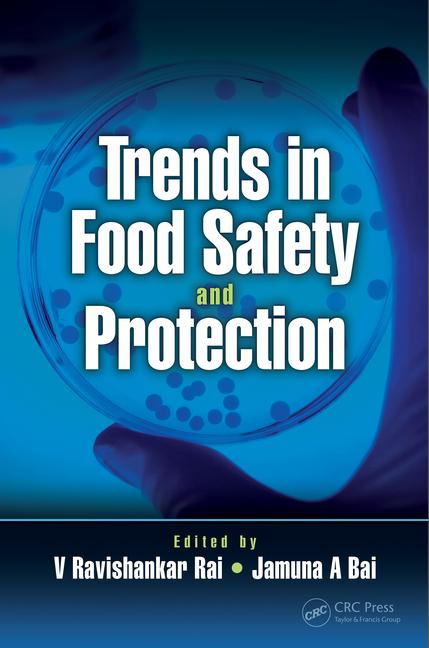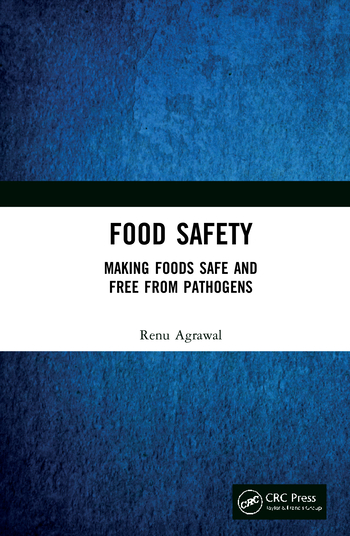Op-Ed: FDA Needs to Act Now on Toxic Metals in Baby Food
Exclusive remarks from Congressman Raja Krishnamoorthi to Food Safety Magazine

Parents across the country would be shocked to learn that the federal government sets limits on the amount of heavy metals in bottled water, but not for the very first foods they feed their babies. I know I was.
My daughter, who is now 4 years old, was eating these products only a short while ago. Knowing that she might have consumed these foods and been harmed makes my blood boil. The calls and letters I’ve received from worried parents around the country break my heart. Parents need to trust that our government is protecting our children. Companies manufacturing and selling baby food must not be allowed to cut corners.
Responding to published reports, my House Oversight Subcommittee investigated and reported on the prevalence of toxic metals such as arsenic, lead, cadmium, and mercury in prepared baby food. These included trusted brands commonly found in grocery stores such as HappyBABY (Nurture, Inc.), Earth’s Best Organic (Hain Celestial Group, Inc.), Beech-Nut, and Gerber.
Even worse, some of the leading companies in the market initially refused to provide their internal data. Despite the cooperation of their competitors, Walmart (seller of Parent’s Choice), Sprout Organic Foods, and Campbell (seller of Plum Organics) failed to provide data from their internal screenings for heavy metals prior to my report. After the report was released, Campbell only partially provided the requested materials, potentially obscuring the full scale of these neurotoxins across the prepared baby food market.
One month after we issued our report, the U.S. Food and Drug Administration (FDA) announced that it would begin the process of setting standards for heavy metals in baby food. Unfortunately, FDA offered no deadlines for those new regulations to be issued. No timeline was given to put parents at ease. This simply isn’t good enough. Parents don’t have time to wait for an extended FDA process when we already know the dangers that toxic heavy metals pose to the neurological development of our children.
FDA’s letter to baby food manufacturers and processors was a welcome first step and signaled that these companies need to make changes now—ahead of a pending regulatory shift. But we need stronger and more immediate enforcement measures to ensure our children are safe. The baby food industry cannot be trusted to regulate itself.
FDA’s announcement of its initial steps came the day after I announced plans to introduce the Baby Food Safety Act with my colleagues Senator Amy Klobuchar (D-MN), Senator Tammy Duckworth (D-IL), and Congressman Tony Cardenas (D-CA). Earlier this week, we introduced our bill to require FDA to set strong safety standards for toxic metal levels in baby food. Based on careful consultation with experts, we developed clear maximum thresholds for each of the subject metals: 10 ppb for arsenic, 5 ppb for lead, 5 ppb for cadmium, and 2 ppb for mercury. We hope that FDA will adopt these stringent standards for child safety as it develops its own regulatory guidance.
We expect that the Biden Administration will be a willing partner in safeguarding our children from harmful consumer products. FDA has been helpful in providing guidance on our baby food safety legislation, but we need to act quickly to resolve this crisis through both legislation and effective regulation.
We must ensure that families can trust the safety of the food they feed their children. There is no higher priority—and no time to waste.
Congressman Raja Krishnamoorthi, J.D., represents the 8th District of Illinois, which includes Chicago’s west and northwest suburbs. He serves on the House Permanent Select Committee on Intelligence, the Select Subcommittee on the Coronavirus Crisis, the Committee on Oversight and Reform and as Chairman of its Subcommittee on Economic and Consumer Policy, Vice-Chair of the LGBTQ+ Equality Caucus, Co-Chair of the Congressional Asian Pacific American Caucus Immigration Task Force, and as an Assistant Whip for the Democratic caucus. Raja previously served in Illinois state government on the board of the Illinois Housing Development Authority, as a Special Assistant Attorney General in the office’s anti-corruption unit, and as Deputy State Treasurer, before becoming president of small technology businesses in the Chicago area. He earned a bachelor’s degree in mechanical engineering from Princeton University and received his Juris Doctor from Harvard Law School.
Looking for a reprint of this article?
From high-res PDFs to custom plaques, order your copy today!









